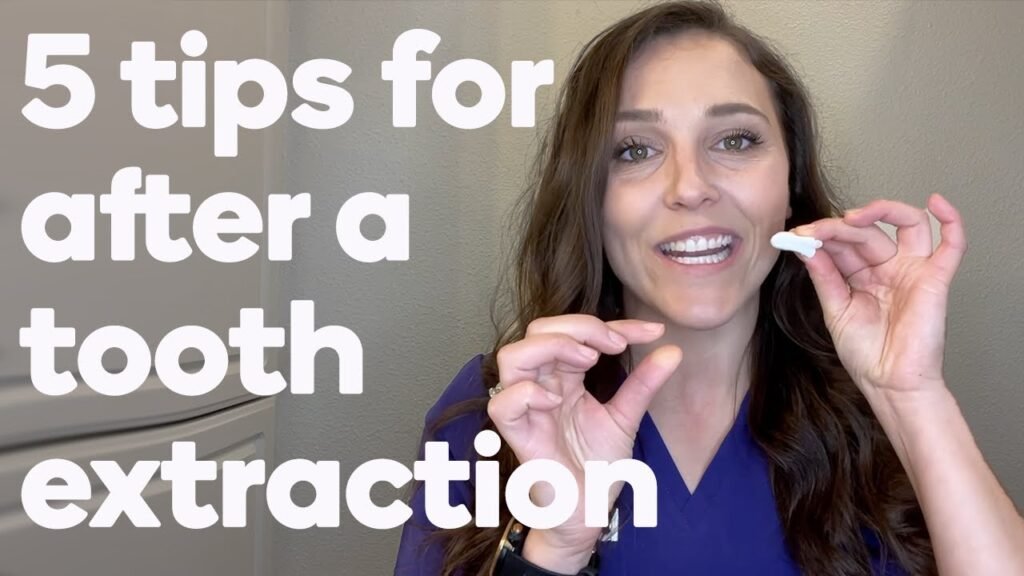Top Drugs to Avoid Before Tooth Extraction

Before undergoing a tooth extraction procedure, it is crucial to be aware of certain medications that could potentially interfere with the process. From blood thinners to anti-inflammatory drugs, there are specific medications that should be avoided to prevent complications during and after the extraction. In this article, we will discuss the top drugs to steer clear of before tooth extraction, ensuring a smooth and successful procedure.
What should you avoid doing prior to a tooth extraction?
Before a tooth extraction, there are important steps to follow to ensure a smooth procedure and quick recovery. It is crucial to avoid smoking or chewing tobacco for at least 24 hours beforehand, as this can interfere with the healing process. Additionally, refraining from consuming a heavy meal right before the appointment is recommended to prevent any complications during the extraction.
Furthermore, it is advised to steer clear of alcohol and aspirin before the procedure, as these can lead to increased bleeding post-extraction. By following these guidelines, you can help minimize risks and promote optimal healing after the tooth extraction. Remember, your oral health is paramount, so taking these precautions is essential for a successful and comfortable experience.
Can medication be taken before a tooth extraction?
Yes, you can take medication before a tooth extraction to help reduce swelling and pain. Studies have shown that nonsteroidal anti-inflammatory drugs like ibuprofen can be effective in minimizing post-operative discomfort. By taking these medications before the procedure, you can potentially experience a smoother recovery process.
Incorporating ibuprofen (Advil®/Motrin®) before a tooth extraction can be beneficial in managing pain and swelling afterwards. Research suggests that pre-operative use of these medications can lead to a decrease in post-operative discomfort, making the recovery period more tolerable. Consulting with your dentist or oral surgeon about taking medication before the procedure can help ensure a more comfortable experience during and after the tooth extraction.
Which medications can interfere with dental anesthesia?
Certain medications can interfere with dental anesthesia, such as nonselective beta-adrenergic blocking agents like propranolol. These drugs can inhibit the vasodilatory effect of epinephrine in local anesthetic solutions, leading to potentially dangerous hypertensive reactions and reflex bradycardia. It is crucial for dental clinicians to be aware of these interactions and take steps to avoid them during procedures.
Being mindful of the medications a patient is taking is essential in preventing adverse reactions during dental procedures. For example, propranolol and other nonselective beta-adrenergic blocking agents can interfere with the effectiveness of dental local anesthetics containing epinephrine. By recognizing and avoiding these drug interactions, dental professionals can ensure the safety and well-being of their patients.
In order to provide safe and effective dental care, it is important for clinicians to stay informed about potential medication interactions. Drugs like propranolol can hinder the vasodilatory effects of epinephrine in local anesthetics, leading to serious complications. By staying vigilant and proactive, dental professionals can mitigate the risks associated with these medication interactions and provide optimal care for their patients.
Stay Informed: Drugs to Avoid Before Tooth Extraction
Stay informed about the drugs to avoid before undergoing a tooth extraction to ensure a smooth and successful procedure. Certain medications, such as blood thinners and aspirin, can increase the risk of excessive bleeding during the extraction process. It is important to consult with your dentist or healthcare provider prior to the procedure to discuss any medications you are taking and determine if any adjustments need to be made.
Taking proactive steps to avoid certain drugs before a tooth extraction can help minimize complications and ensure a quicker recovery. By staying informed about the potential risks associated with certain medications, you can work with your healthcare provider to create a safe and effective treatment plan. Prioritize your oral health by being proactive and informed about the drugs to avoid before undergoing a tooth extraction.
Protect Your Oral Health: Top Medications to Steer Clear of Before Dental Surgery
Protect Your Oral Health: Top Medications to Steer Clear of Before Dental Surgery
When preparing for dental surgery, it is crucial to be mindful of the medications you are taking. Certain medications can increase the risk of complications during and after the procedure. To ensure a successful surgery and optimal oral health, it is recommended to avoid blood thinners such as aspirin, NSAIDs like ibuprofen, and anticoagulants like warfarin. These medications can lead to excessive bleeding and interfere with the healing process, making it essential to consult with your dentist or healthcare provider before undergoing any dental procedure.
In addition to blood thinners, it is important to steer clear of certain medications that can impact anesthesia and cause adverse reactions during dental surgery. Medications such as bisphosphonates, antidepressants, and immunosuppressants can interact with anesthesia drugs and increase the risk of complications. By discussing your medication list with your healthcare provider prior to surgery, you can ensure a smooth and successful dental procedure while protecting your oral health.
Before undergoing a tooth extraction procedure, it is crucial to be aware of the drugs that can potentially interfere with the healing process and increase the risk of complications. By avoiding certain medications such as aspirin, blood thinners, and bisphosphonates, patients can significantly reduce the chances of excessive bleeding, delayed healing, and other post-operative issues. It is always recommended to consult with your dentist or healthcare provider to discuss your medication regimen and make any necessary adjustments prior to the extraction. Taking proactive steps to avoid these drugs can help ensure a smooth and successful recovery following the procedure.